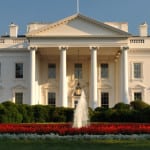World leaders have begun arriving in Copenhagen days before the international conference’s close on Dec. 18 to sign a comprehensive pact to curb climate change, but disagreements—mostly on rich-poor lines—among the 193 attending nations on issues from emissions reductions to technologies such as carbon capture and storage (CCS) could mean there may be nothing to sign.
Putting Up a Legal Framework
A major dispute stems from the division of the talks into two tracks: One to extend binding emissions from the 1997 Kyoto Protocol—the current emissions-limiting treaty—beyond 2012 for all developed nations but the U.S. (which never ratified it), and another, to make concrete what the U.S. and developing nations such as China and India will do to cut their greenhouse gas (GHG) emissions.
The European Union (EU) has called for the two tracks to be merged in a single legally binding treaty. This has been rejected by poorer developing nations, which accuse industrialized countries of trying to get rid of the Kyoto Protocol. China and India, backed by Brazil and South Africa, do not want their national commitments to become legally binding in an international treaty.
China has pledged to reduce the rise of carbon emissions relative to economic growth by 40% to 45%. India has pledged reductions of 20% to 25%. Brazil and South Africa have also made serious pledges. Altogether, the BASIC block (Brazil, South Africa, India, and China) claims that total reductions would amount to 2.1 gigatons of carbon dioxide in the coming decade. On Tuesday, the block said that they had drawn up a draft for a global agreement and would submit it if developed countries tried to shortcut UN-led negotiations.
Emissions Reductions
The U.S. has rejected the demands of developing nations and most developed countries that it cut emissions more than its current goal of 17% from 2005 levels. That baseline has been a major point of contention between the U.S. and European countries. While U.S. officials prefer to measure emissions cuts against the year 2005, the EU prefers measuring cuts against the year 1990. The EU, which has offered to cut its emissions by 20% beneath 1990 levels by 2020 and 30% if other countries agree to do the same, has said that the U.S. emissions reduction pledge of 17% only amounts to about 3% or 4% of 1990 levels.
But, according to The Wall Street Journal, a1990 timeline favors the EU because of economic and political developments since then that have reduced emissions, including the collapse of Eastern Europe’s economy following the break-up of the Soviet Union. The newspaper says that a 2005 baseline favors the Obama administration partly because it leaves out the entire first term of George W. Bush.
Emissions-Reducing Technologies
The UN reported on Tuesday that because some countries have reservations about CCS, the emerging technology will not be added to the UN-backed carbon-reducing mechanisms in Copenhagen. A text by the UN Framework Convention on Climate Change (UNFCCC) notes that while the U.S. and the UK are chief advocates of the technology, some other countries have concerns over the “long-term liability for the storage site, including liability for any seepage.”
The text specifies that the body will continue to work on the issue in order to produce a more detailed suggestion for the COP16 in Mexico next year, or the COP17 in South Africa in 2011.
Aid for the Developing World
Developing countries say they need at least $100 billion to help them transition to low-fossil-fuel economies. Most African countries and small island states have demanded aid as a condition for signing a new pact to replace Kyoto, which expires in 2012.
To date, Obama has announced a $10 billion fund to help poor countries meet immediate needs in preparing for climate disasters. European Union leaders agreed on Friday to pay $10.5 billion over the next three years to help poor countries begin tackling the effects of global warming. And this week, Japan offered $10 billion over three years.
Political, Economic Sanctions
Another point of contention—particularly between China and the U.S.—is a proposal that a global agreement to reduce GHGs prohibit nations from imposing trade sanctions tied to global warming. China said such language will avert “trade wars,” according to a Bloomberg report.
The news agency said that the demand stems from a proposed U.S. law that could impose tariffs by 2020 on imports of certain goods from countries such as China seen as not doing enough to cut emissions. The U.S. Chamber of Commerce sides with China, it claims.
Sources: en.Cop15.dk, The Wall Street Journal, The New York Times, Bloomberg









